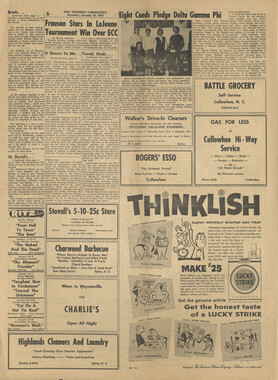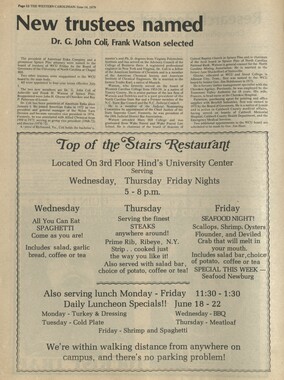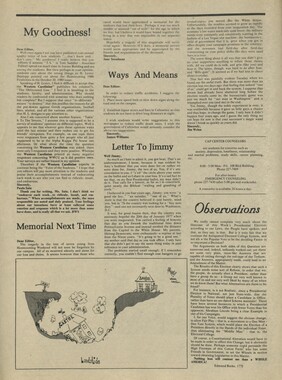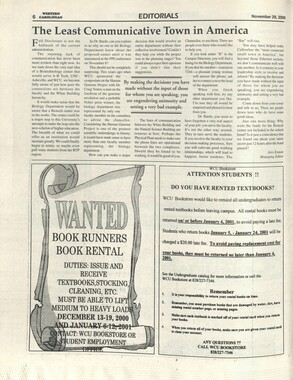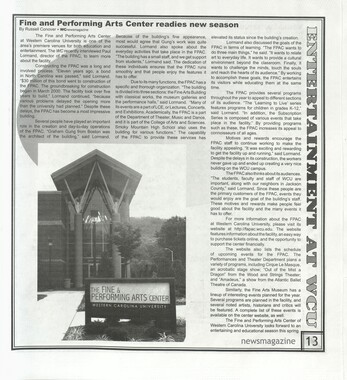Western Carolina University (20)
View all
- Canton Champion Fibre Company (2308)
- Cherokee Traditions (291)
- Civil War in Southern Appalachia (165)
- Craft Revival (1942)
- Great Smoky Mountains - A Park for America (2946)
- Highlights from Western Carolina University (430)
- Horace Kephart (941)
- Journeys Through Jackson (159)
- LGBTQIA+ Archive of Jackson County (85)
- Oral Histories of Western North Carolina (314)
- Picturing Appalachia (6873)
- Stories of Mountain Folk (413)
- Travel Western North Carolina (160)
- Western Carolina University Fine Art Museum Vitreograph Collection (129)
- Western Carolina University Herbarium (92)
- Western Carolina University: Making Memories (738)
- Western Carolina University Publications (2491)
- Western Carolina University Restricted Electronic Theses and Dissertations (146)
- Western North Carolina Regional Maps (71)
- World War II in Southern Appalachia (131)
University of North Carolina Asheville (6)
View all
- Allanstand Cottage Industries (62)
- Appalachian National Park Association (53)
- Bennett, Kelly, 1890-1974 (1463)
- Berry, Walter (76)
- Brasstown Carvers (40)
- Carver, George Washington, 1864?-1943 (26)
- Cathey, Joseph, 1803-1874 (1)
- Champion Fibre Company (233)
- Champion Paper and Fibre Company (297)
- Cherokee Indian Fair Association (16)
- Cherokee Language Program (22)
- Crowe, Amanda (40)
- Edmonston, Thomas Benton, 1842-1907 (7)
- Ensley, A. L. (Abraham Lincoln), 1865-1948 (275)
- Fromer, Irving Rhodes, 1913-1994 (70)
- George Butz (BFS 1907) (46)
- Goodrich, Frances Louisa (120)
- Grant, George Alexander, 1891-1964 (96)
- Heard, Marian Gladys (60)
- Kephart, Calvin, 1883-1969 (15)
- Kephart, Horace, 1862-1931 (313)
- Kephart, Laura, 1862-1954 (39)
- Laney, Gideon Thomas, 1889-1976 (439)
- Masa, George, 1881-1933 (61)
- McElhinney, William Julian, 1896-1953 (44)
- Niggli, Josephina, 1910-1983 (10)
- North Carolina Park Commission (105)
- Osborne, Kezia Stradley (9)
- Owens, Samuel Robert, 1918-1995 (11)
- Penland Weavers and Potters (36)
- Roberts, Vivienne (15)
- Roth, Albert, 1890-1974 (142)
- Schenck, Carl Alwin, 1868-1955 (1)
- Sherrill's Photography Studio (2565)
- Southern Highland Handicraft Guild (127)
- Southern Highlanders, Inc. (71)
- Stalcup, Jesse Bryson (46)
- Stearns, I. K. (213)
- Thompson, James Edward, 1880-1976 (226)
- United States. Indian Arts and Crafts Board (130)
- USFS (683)
- Vance, Zebulon Baird, 1830-1894 (1)
- Weaver, Zebulon, 1872-1948 (58)
- Western Carolina College (230)
- Western Carolina Teachers College (282)
- Western Carolina University (2008)
- Western Carolina University. Mountain Heritage Center (18)
- Whitman, Walt, 1819-1892 (10)
- Wilburn, Hiram Coleman, 1880-1967 (73)
- Williams, Isadora (3)
- Cain, Doreyl Ammons (0)
- Crittenden, Lorraine (0)
- Rhodes, Judy (0)
- Smith, Edward Clark (0)
- Appalachian Region, Southern (2569)
- Asheville (N.C.) (1923)
- Avery County (N.C.) (26)
- Blount County (Tenn.) (195)
- Buncombe County (N.C.) (1672)
- Cherokee County (N.C.) (283)
- Clay County (N.C.) (555)
- Graham County (N.C.) (236)
- Great Smoky Mountains National Park (N.C. and Tenn.) (519)
- Haywood County (N.C.) (3569)
- Henderson County (N.C.) (70)
- Jackson County (N.C.) (4912)
- Knox County (Tenn.) (35)
- Knoxville (Tenn.) (13)
- Lake Santeetlah (N.C.) (10)
- Macon County (N.C.) (420)
- Madison County (N.C.) (215)
- McDowell County (N.C.) (39)
- Mitchell County (N.C.) (132)
- Polk County (N.C.) (35)
- Qualla Boundary (982)
- Rutherford County (N.C.) (76)
- Swain County (N.C.) (2182)
- Transylvania County (N.C.) (270)
- Watauga County (N.C.) (12)
- Waynesville (N.C.) (86)
- Yancey County (N.C.) (72)
- Aerial Photographs (3)
- Aerial Views (60)
- Albums (books) (4)
- Articles (1)
- Artifacts (object Genre) (228)
- Bibliographies (1)
- Biography (general Genre) (2)
- Cards (information Artifacts) (38)
- Clippings (information Artifacts) (191)
- Copybooks (instructional Materials) (3)
- Crafts (art Genres) (622)
- Depictions (visual Works) (21)
- Design Drawings (1)
- Drawings (visual Works) (185)
- Envelopes (73)
- Exhibitions (events) (1)
- Facsimiles (reproductions) (1)
- Fiction (general Genre) (4)
- Financial Records (12)
- Fliers (printed Matter) (67)
- Glass Plate Negatives (381)
- Guidebooks (2)
- Internegatives (10)
- Interviews (815)
- Land Surveys (102)
- Letters (correspondence) (1013)
- Manuscripts (documents) (618)
- Maps (documents) (177)
- Memorandums (25)
- Minutes (administrative Records) (59)
- Negatives (photographs) (6090)
- Newsletters (1290)
- Newspapers (2)
- Notebooks (8)
- Occupation Currency (1)
- Paintings (visual Works) (1)
- Pen And Ink Drawings (1)
- Periodicals (193)
- Personal Narratives (10)
- Photographs (12976)
- Plans (maps) (1)
- Poetry (5)
- Portraits (4568)
- Postcards (329)
- Programs (documents) (181)
- Publications (documents) (2443)
- Questionnaires (65)
- Relief Prints (26)
- Sayings (literary Genre) (1)
- Scrapbooks (282)
- Sheet Music (2)
- Slides (photographs) (402)
- Songs (musical Compositions) (2)
- Sound Recordings (796)
- Specimens (92)
- Speeches (documents) (18)
- Tintypes (photographs) (8)
- Transcripts (322)
- Video Recordings (physical Artifacts) (23)
- Text Messages (0)
- A.L. Ensley Collection (275)
- Appalachian Industrial School Records (7)
- Appalachian National Park Association Records (336)
- Axley-Meroney Collection (2)
- Bayard Wootten Photograph Collection (20)
- Bethel Rural Community Organization Collection (7)
- Blumer Collection (5)
- C.W. Slagle Collection (20)
- Canton Area Historical Museum (2110)
- Carlos C. Campbell Collection (462)
- Cataloochee History Project (64)
- Cherokee Studies Collection (4)
- Daisy Dame Photograph Album (5)
- Daniel Boone VI Collection (1)
- Doris Ulmann Photograph Collection (112)
- Elizabeth H. Lasley Collection (1)
- Elizabeth Woolworth Szold Fleharty Collection (4)
- Frank Fry Collection (95)
- George Masa Collection (173)
- Gideon Laney Collection (452)
- Hazel Scarborough Collection (2)
- Hiram C. Wilburn Papers (28)
- Historic Photographs Collection (236)
- Horace Kephart Collection (861)
- Humbard Collection (33)
- Hunter and Weaver Families Collection (1)
- I. D. Blumenthal Collection (4)
- Isadora Williams Collection (4)
- Jesse Bryson Stalcup Collection (47)
- Jim Thompson Collection (224)
- John B. Battle Collection (7)
- John C. Campbell Folk School Records (80)
- John Parris Collection (6)
- Judaculla Rock project (2)
- Kelly Bennett Collection (1482)
- Love Family Papers (11)
- Major Wiley Parris Civil War Letters (3)
- Map Collection (12)
- McFee-Misemer Civil War Letters (34)
- Mountain Heritage Center Collection (4)
- Norburn - Robertson - Thomson Families Collection (44)
- Pauline Hood Collection (7)
- Pre-Guild Collection (2)
- Qualla Arts and Crafts Mutual Collection (12)
- R.A. Romanes Collection (681)
- Rosser H. Taylor Collection (1)
- Samuel Robert Owens Collection (94)
- Sara Madison Collection (144)
- Sherrill Studio Photo Collection (2558)
- Smoky Mountains Hiking Club Collection (616)
- Stories of Mountain Folk - Radio Programs (374)
- The Reporter, Western Carolina University (510)
- Venoy and Elizabeth Reed Collection (16)
- WCU Gender and Sexuality Oral History Project (32)
- WCU Mountain Heritage Center Oral Histories (25)
- WCU Oral History Collection - Mountain People, Mountain Lives (71)
- WCU Students Newspapers Collection (1923)
- Western North Carolina Tomorrow Black Oral History Project (69)
- William Williams Stringfield Collection (2)
- Zebulon Weaver Collection (109)
- African Americans (390)
- Appalachian Trail (35)
- Artisans (521)
- Cherokee art (84)
- Cherokee artists -- North Carolina (10)
- Cherokee language (21)
- Cherokee pottery (101)
- Cherokee women (208)
- Church buildings (189)
- Civilian Conservation Corps (U.S.) (111)
- College student newspapers and periodicals (2012)
- Dams (107)
- Dance (1023)
- Education (222)
- Floods (61)
- Folk music (1015)
- Forced removal, 1813-1903 (2)
- Forest conservation (220)
- Forests and forestry (1184)
- Gender nonconformity (4)
- Great Smoky Mountains National Park (N.C. and Tenn.) (181)
- Hunting (45)
- Landscape photography (25)
- Logging (119)
- Maps (83)
- Mines and mineral resources (8)
- North Carolina -- Maps (18)
- Paper industry (38)
- Postcards (255)
- Pottery (135)
- Railroad trains (72)
- Rural electrification -- North Carolina, Western (3)
- School integration -- Southern States (2)
- Segregation -- North Carolina, Western (5)
- Slavery (5)
- Sports (452)
- Storytelling (243)
- Waterfalls -- Great Smoky Mountains (N.C. and Tenn.) (66)
- Weaving -- Appalachian Region, Southern (280)
- Wood-carving -- Appalachian Region, Southern (328)
- World War, 1939-1945 (173)
Western Carolinian Volume 41 Number 23
Item
Item’s are ‘child’ level descriptions to ‘parent’ objects, (e.g. one page of a whole book).
-
-
Page 8 THE WESTERN CAROLINIAN TUESDAY, NOVEMBER 18, 1975 ii ■ ■ ■ ■— ■ Violation of University Regulations-Code of Behavior -Section 6, Planry 2 OH...>rt/SH,iWW... ^SULTiNG IN -poMP ON AaJfvVNiS-rKATOR'S Senate Judiciary Committee considers criminal code bill FROM PAGE 1 tapping authority would be greatly expanded. The government could impose 48-hour "e- mergency" wiretaps without court approval and direct telephone companies and landlords to cooperate "forthwith and unobtrusively" with the wiretappers,, The insanity defense in a trial would be greatly limited under the act. Under the "Official Secrets Act" sections, the de finition espionage is ex panded. Disclosing "national defense information" to unauthorized persons is a crime. "National defense information" goes beyond that information which is classified, covering almost every aspect of mili tary and intelligence activities. SB I is the paradoxical result of early efforts to reform and update the many archaic measures found in the huge US criminal code. President Lyndon Johnson appointed a commission in 1966 to study and overhaul the criminal code. That body, the National Commission of Reform of Criminal Law, was chaired by former California Governor Pat Brown, and submitted its final report to President Nixon in 1971. But President Nixon had the bill rewritten by Attorney General John Mitchell and his successor Richard Klein- dienst. Later, Senators John McClellan and Roman Hrus- ka (R—NB), leaders on the Senate Judiciary Subcommittee on Criminal Laws and Procedures, consolidated the Brown Commission version and the Nixon version into the current SB 1. The new bill resembles the Nixon administration's version much more than it does tha; ofthe Brown Commission. In nine years, the original intent of the Brown Commission has been diluted and altered. Louis Schwartz, director of the Brown Commission, accused the Nixon in terpretation of contradicting "in every respect" the original recommendations of reforming the criminal code. He labeled the Nixon proposal a "program of primitive venge- fulness." The Senate Judiciary Com- nrttee willprobabb \oteonSBl before Christmas. Although President Ford has endorsed the criminal code bill as it stands, some of the senators who co-sponsored the bill are having second thoughts. Birch Bayh (D--IN) has withdrawn his sponsorship. Even Hruska, a staunch conservative and one of the bill's chiel supporters, has recently indicated a willingness to amend some of the "official secrets" sections. But critics of the bill are still wary. "The willingness of the bill's proponents to compromise," said an associate director of the American Civil liberties Union (ACLIT), "is likely to result in amendments that will make the bill, while still not acceptable to us, just palatable enough to receive majority support...on the Senate floor." The only answer, insist the ACLU and other critics, is a complete scrapping of SB Justice SGA's purported reason for bringing WCU student Tim McNeely to trial is to discourage future disturbances at WCU concerts. The Superior Court, by denying a dismissal of the case and granting a continuation of it reiterated the SGA's determination to deter future disturbances by making an example of McNeely. By the same token, SGA is refusing to recognize that influences outside the WCU student body had anything to do with the disturbances at the Ronstadt concert. Non-student rowdies identified at the concert are not being brought to North Carolina courtrooms to be prosecuted for their participation in the activities deemed "unseemly" and "impinging on the rights of others" by SGA. McNeely has been singled out as an example by SGA, while the prosecutors forget that an example must also be set for non-students wishing to attend future WCU concerts. The effectiveness of SGA's plans for making McNeely an example, not the actual guilt or innocence of McNeely, are not the questions surrrounding the actions being taken. It does, however, appear that SGA is interested only in carrying out partial justice by prosecuting only McNeely. SGA has the duty to see that deterrent measures are taken against potential future involvement of non-students in concert disturbances, or that those non-students responsible for generating a great deal of the trouble at the Ronstadt concert be tried in a court of law other than SGA courts. Guilty or not, if Tim McNeely is convicted on the charges brought against him, a serious breach of justice will have been carried out if no other persons — student or non-student — are brought to justice for their actions at the Ronstadt concert. (A.E.B., Jr.) Th=- We5TT=1^I EIai^LiMian Editor-in-Chief Annelle Beall Associate Editor Erik Kirzinger Staff Writers Tom Jones, Wanda Crawford, A. E. Brown, Jr. Sports Hank Komodowski, James Cox Photographers Stokes Gatewood Artist Tom Addison Copy Editor Mary Lou Yakush Typist Cara Massey Layout Wally Grotophorst Marlicia Gaut, Business Manager Vikki DeSoto Sales Manager Rick DeSoto Statistician JoanEstridge Adlayout LynneSyrella AdSalesmen Wesley Hensly Frank Thomas Circulation Rick Tuggle, Betty Wood Secretary Denise Mills Editor Emeritus DwightSparks Advisor Gerry Schwartz
Object
Object’s are ‘parent’ level descriptions to ‘children’ items, (e.g. a book with pages).
-
The Western Carolinian is Western Carolina University's student-run newspaper. The paper was published as the Cullowhee Yodel from 1924 to 1931 before changing its name to The Western Carolinian in 1933.
-
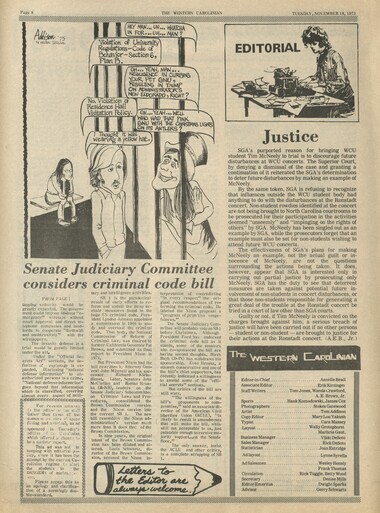

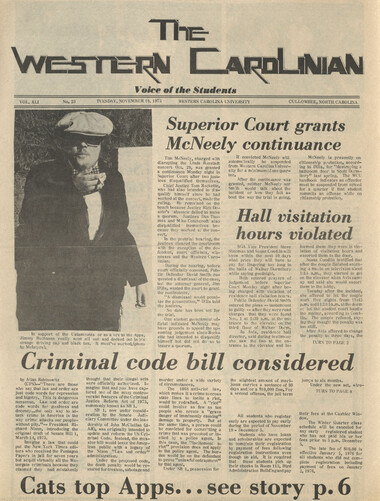
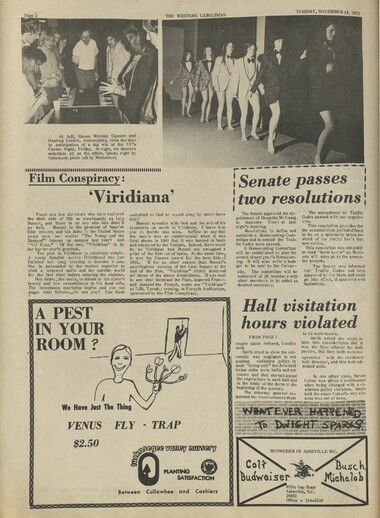
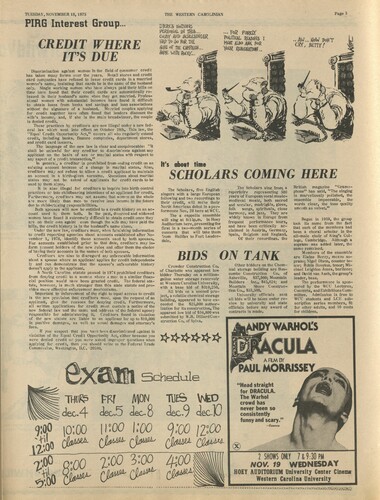
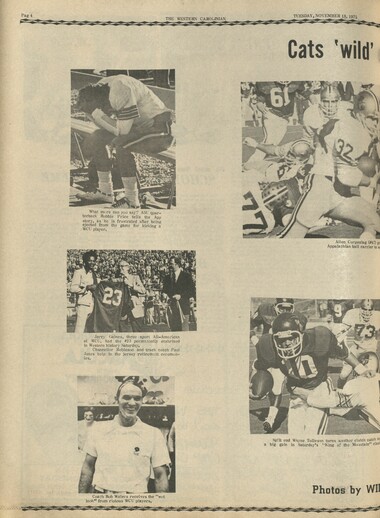
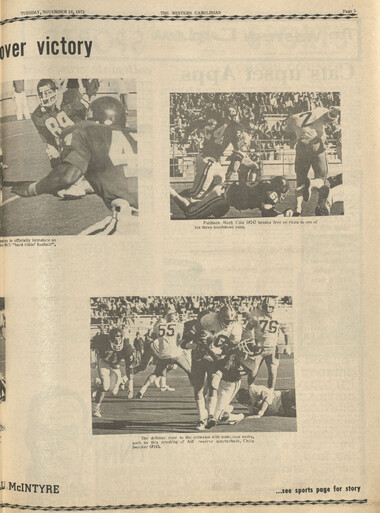
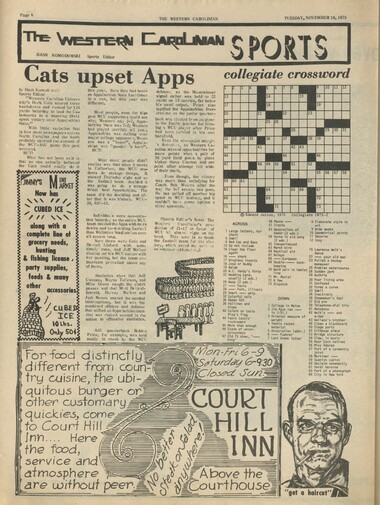
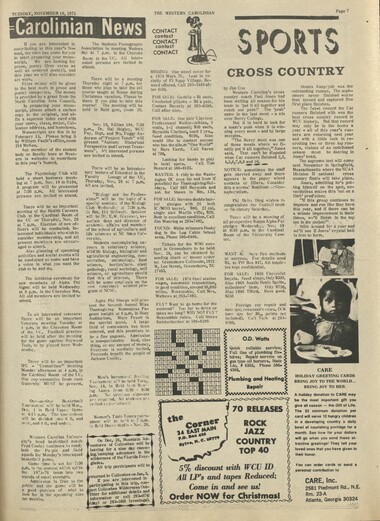
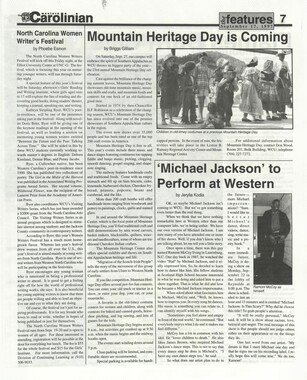


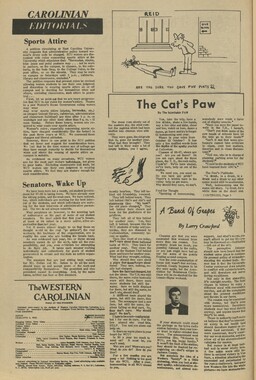
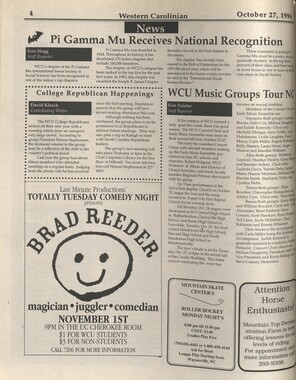
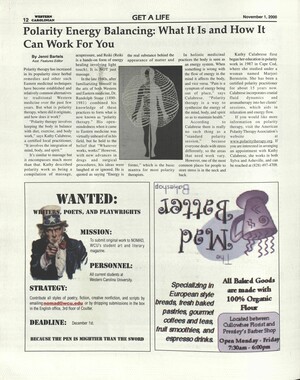
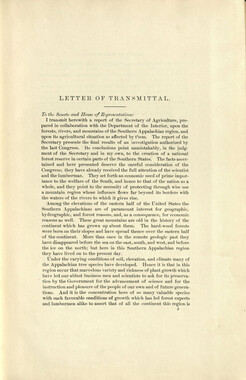
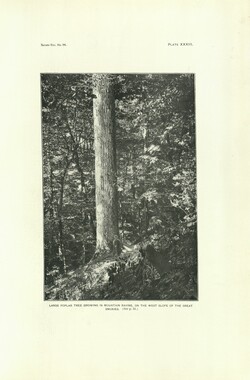
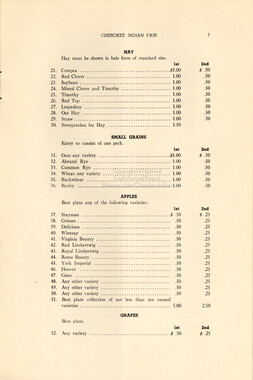
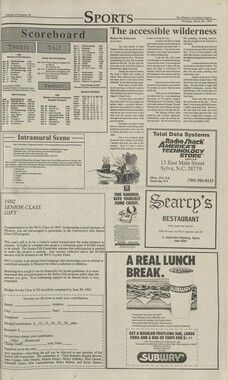
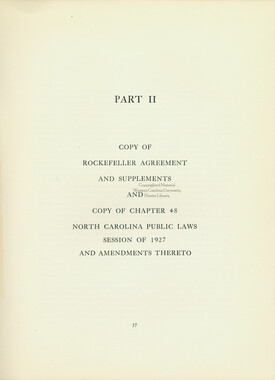
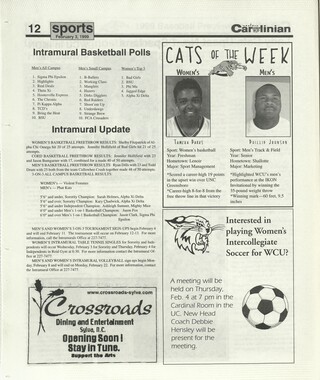
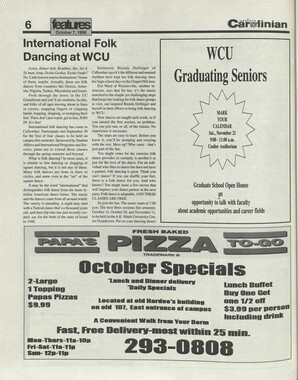
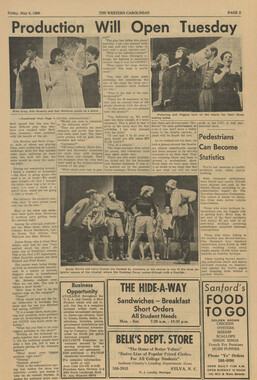
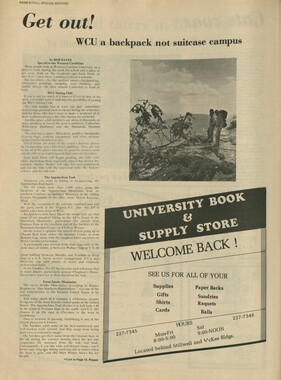

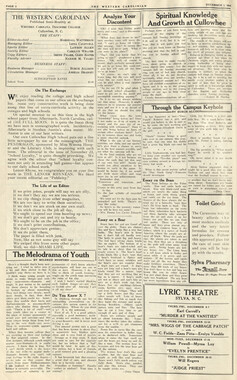
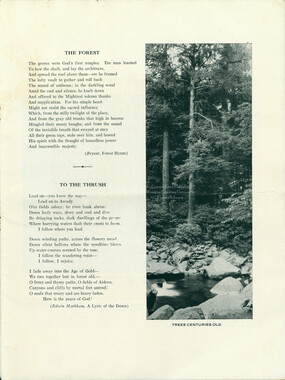
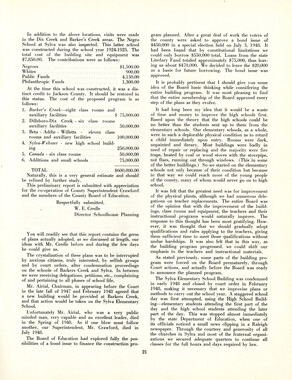

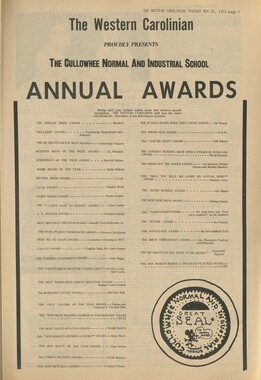
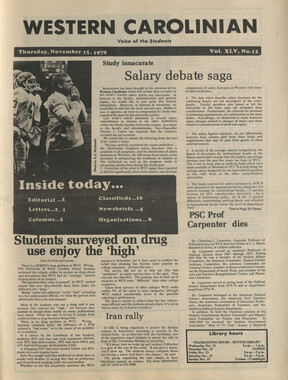
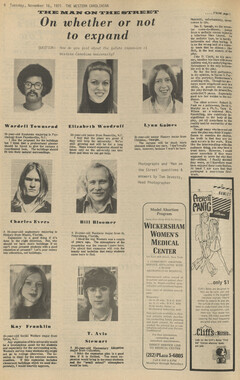
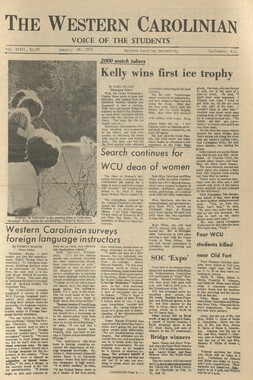
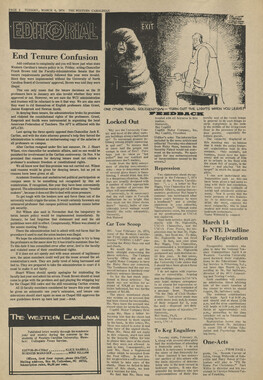

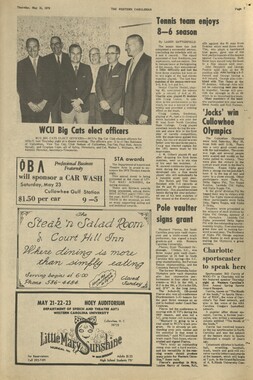
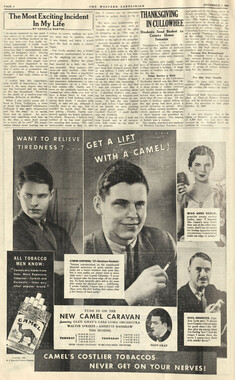
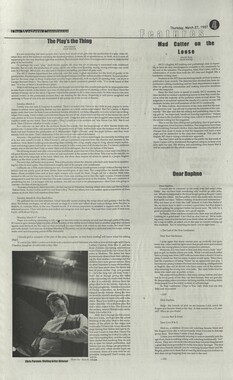
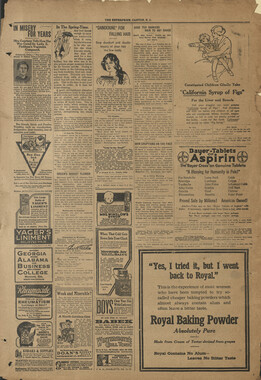
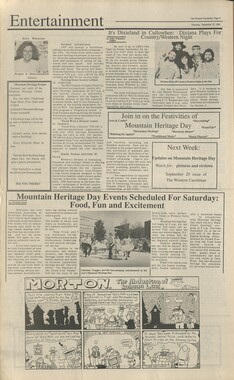
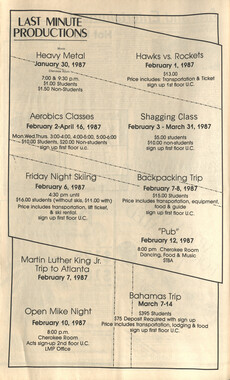
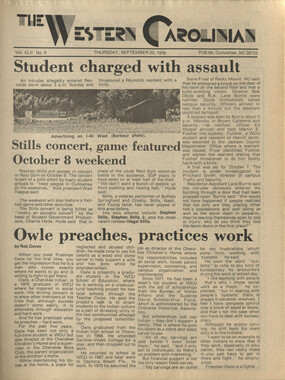
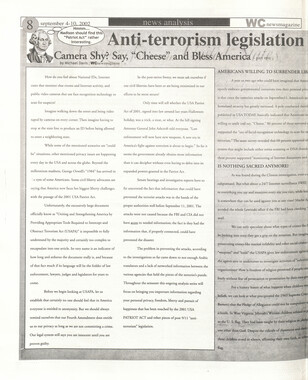

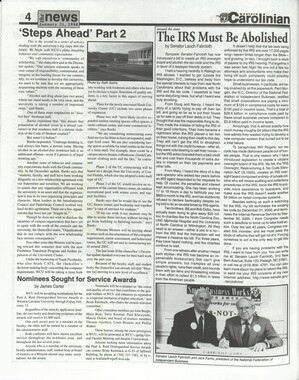
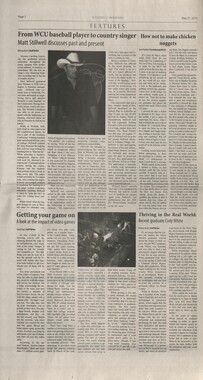

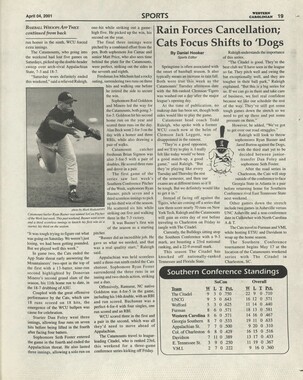

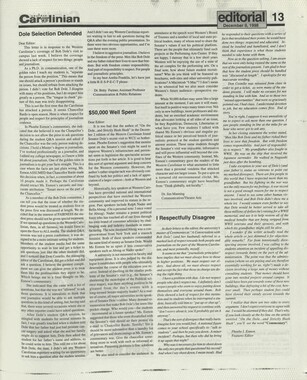
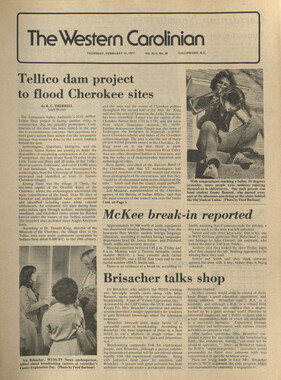


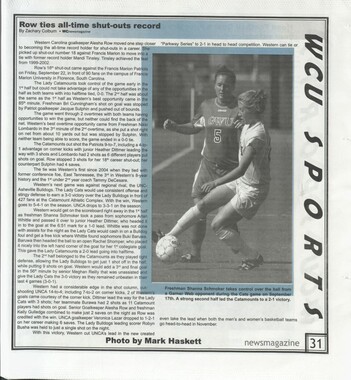
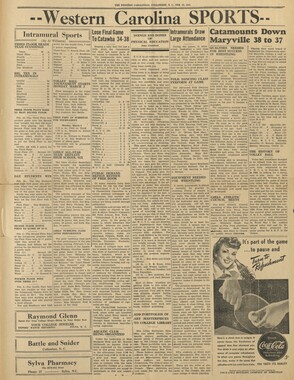
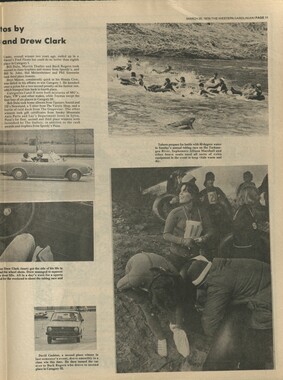


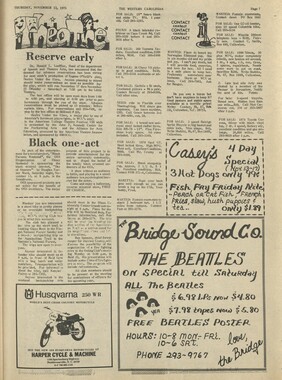



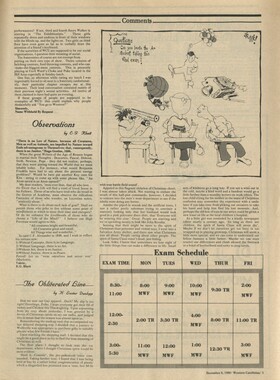
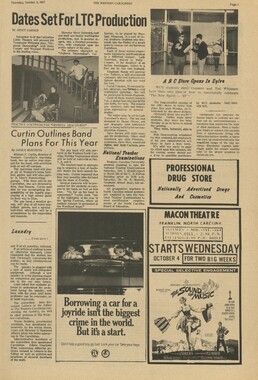


![hl_westerncarolinian_2004_[vol69_no04]_15.jpg](/media/w400h300/wcu_publications/hl_westerncarolinian_2004_[vol69_no04]_15.jpg)
